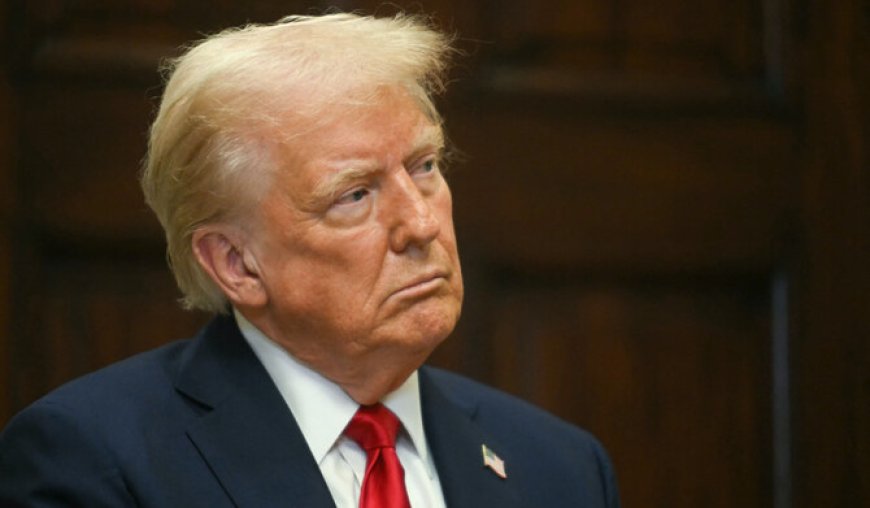Trump’s Gamble: Can a Bulldozer Be a Peacemaker?
President Donald Trump has returned to the White House with an audacious declaration: he will establish a legacy as a "peacemaker and unifier." However, his initial actions indicate that he intends to maintain his confrontational approach, which raises concerns about whether his strategy can legitimately promote peace or further alienate both allies and adversaries.

President Donald Trump has returned to the White House with an audacious declaration: he will establish a legacy as a "peacemaker and unifier." However, his initial actions indicate that he intends to maintain his confrontational approach, which raises concerns about whether his strategy can legitimately promote peace or further alienate both allies and adversaries.
Trump's inaugural address emphasized his endorsement of a Gaza armistice and suggested that he may pursue peace in Ukraine by exerting pressure on President Vladimir Putin to terminate the three-year invasion. Nevertheless, these conciliatory gestures were in stark contrast to rhetoric and actions that were reminiscent of his previous term. His declaration to "reclaim the Panama Canal," allegations of China's excessive influence in the region, and threats to seize Greenland from Denmark evoke recollections of his frequently divisive foreign policy.
Trump's initial actions are indicative of a paradoxical perspective. On the one hand, he boasts of his diplomatic efforts with North Korea and his commitment to preventing the escalation of new conflicts during his first term, which is indicative of his desire for peace. Conversely, his militaristic tendencies are still readily apparent. His administration has already declared its intention to withdraw from the Paris Climate Accord and the World Health Organization, actions that have resulted in the United States being cut off from nearly every other nation. Furthermore, the dispatching of soldiers to the Mexican border and the threat of tariffs on allies are indicative of a combative tendency that could potentially undermine his stated objectives of peace and unity.
Critics contend that Trump's perspective is consistent with a 19th-century philosophy that was influenced by Andrew Jackson and emphasizes the use of force and confrontation to protect national interests. Benjamin Friedman, the policy director at Defense Priorities, characterizes Trump's approach as contradictory, characterized as a combination of diplomacy and militarism. For instance, Trump expresses his commitment to peace in the Middle East, yet he is still linked to the 2020 strike that resulted in the death of Iranian commander Qassem Soleimani. His antagonistic posture toward Panama and migration from Mexico in Latin America could exacerbate anti-American sentiment, thereby complicating regional diplomacy.
Another example of this dichotomy is Trump's stance toward China. He is attempting to counter China's increasing influence by forming the Quad alliance with Japan, India, and Australia. However, his rhetoric has the potential to exacerbate tensions rather than cultivate the partnerships necessary to contain Beijing's ascent. The United States may become a source of uncertainty if it adopts a "Wolf Warrior"-style diplomacy similar to China, which could alienate conventional U.S. allies.
Trump's domestic decisions have ignited a debate regarding his capacity to reconcile disorder with statesmanship. Secretary of State Marco Rubio's interaction with Quad members is indicative of a strategic endeavor to counterbalance China; however, Trump's overarching foreign policy is lacking in coherence. Kori Schake, a former defense official, contends that Trump's initial actions, despite being less severe than anticipated, are still detrimental. For instance, the United States' capacity to address global health crises is restricted by its withdrawal from the World Health Organization (WHO), and there is a danger of regional anti-Americanism if Panama is antagonized.
Trump has exhibited moments of pragmatism, despite these apprehensions. His commitment to promoting stability in Gaza and brokering peace in Ukraine indicates that he acknowledges the importance of diplomatic capital in order to achieve sustainable outcomes. However, in order to realize these objectives, it will be necessary to navigate the contradictions within his administration's policy framework.
In the end, the fundamental question that Trump's presidency must address is whether it is possible for a leader who is renowned for his demolition tactics to transition into a credible arbitrator. His actions thus far indicate that, although the aspiration is evident, the execution is still rife with obstacles. The pandemonium that characterizes Trump's leadership style may eclipse his vision of a "peacemaker legacy" if he persists in alienating allies and escalating tensions..













































